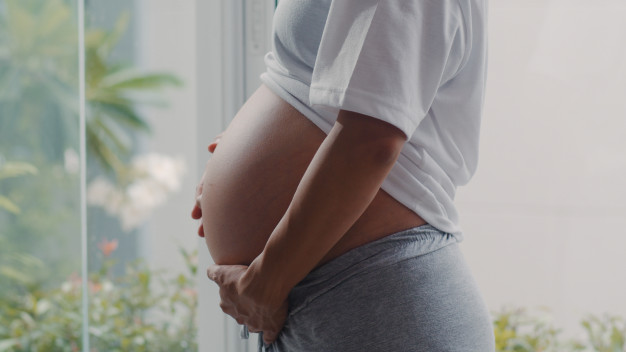Postpartum: Check-ups and changes
the mother can visit her doctor for general check-up and making sure about her recovery after delivery.
1. Vaginal pain:
In case of episiotomy or tear during vaginal delivery. The pain reduces by time. If the pain was persistent or increasing or with fever, check with your doctor as it might be a sign of infection.
2. Separated stomach muscles:
It is caused by the growing uterus. Usually it goes away by 8 weeks postpartum.
The mother may find a bulge above and below her belly button.
In uncomplicated vaginal pregnancies, exercises can be started one or two days after delivery.
Watch the video:
https://www.youtube.com/watch?v=gPzKCM68hlA&list=WL&index=4&t=0s
3. Incontinence:
It can go away in few weeks in most patients, but can stay for longer in some cases.
The mother can strengthen her muscles with pelvic floor exercises (Kegel exercise)
4. Vaginal bleeding and discharge:
Mucus and blood vaginal discharge for first few weeks after delivery is normal, but contact your doctor if it was heavy and more than 8 weeks after delivery.
5. Breasts engorgement:
Breasts might feel full and tender after the third day of delivery. Breastfeeding, warm compresses or warm showers can help.
6. Skin and hair:
After delivery, the mother might experience hair loss that can last up to 5 months.
Iron consumption and zinc level check up can be useful.
Stretch marks and any dark parches in the face will start to fade away.
7. Weight:
6 kg is lost during birth, then half of pregnancy weight gain is lost during the first 6 weeks.
It is estimated that the mother retains average of 5 kg of pregnancy weight.
breastfeeding can help in avoiding weight retention.
8. Lab tests:
a. Hemoglobin test in case of anemia during pregnancy or heavy bleeding after delivery.
b. Glucose tolerance test 6 – 8 weeks postpartum in case of gestational diabetes.
9. Postpartum headache:
Usually it is not related to any serious condition, it can be caused by hormonal changes, lack of sleep, stress or irregular food intake.
Non-breastfeeding women can use regular medication, while breastfeeding women have to ask their doctor for suitable medications, but Paracetamol is safe.
10. Fever:
Contact your doctor in case of fever ( ≥38°C). It might be a sign for:
a. episiotomy or cesarean incision infection.
b. Endometritis
c. Urinary tract infection
11. contraception:
It is advised to consult your doctor regarding birth control methods.
12. Abdominal contractions due to uterine contracting to return to its position and size before pregnancy, and this may take several weeks.
13. The mother may experience fluids retention in the body causing swelling of the feet or ankles, and does not last more than a week after birth.
14. The mother may experience an increase in urination or sweating as the body tries to get rid of retained liquids.



